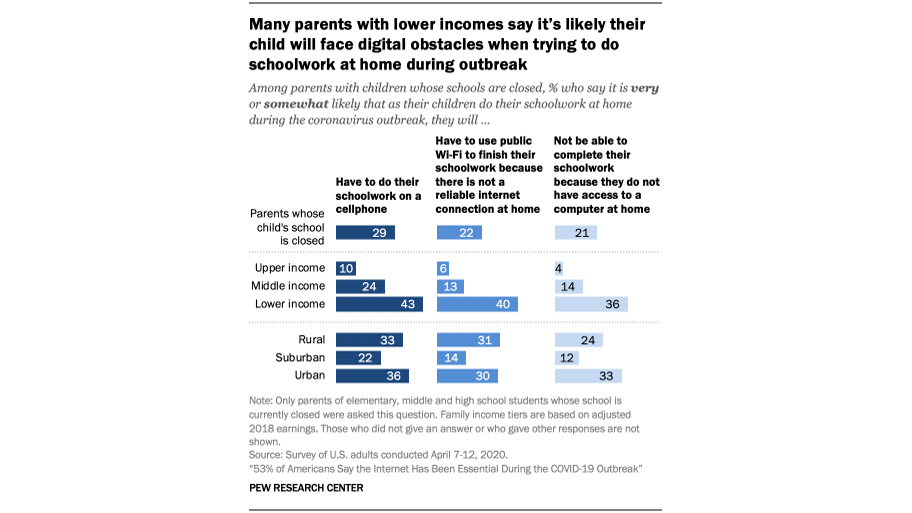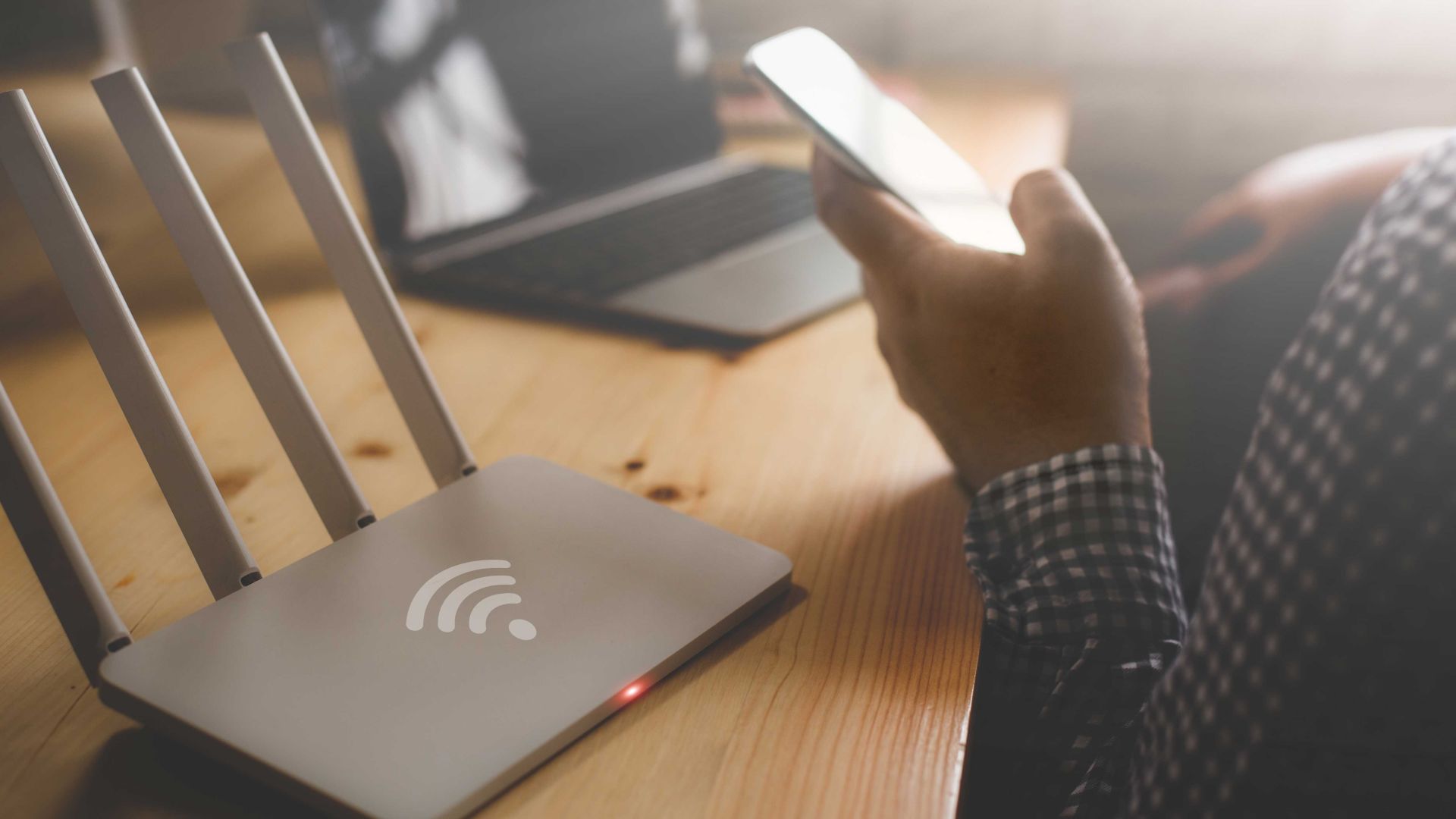From online learning to joining conference calls from home, America has never been more dependent on the internet. However, not everyone has equal access, which is giving rise to a 'digital divide', according to Pew Research Center. New research has shown that nearly nine in ten Americans view the internet as an essential or important tool during the coronavirus outbreak, and this is also affecting how people view the internet, with 90% saying that the internet has played a positive role in their lives.
52% of lower-income Americans facing broadband bill worry
We recently revealed that 77% of lower-income Americans fear their rainy day funds won’t last three months, and now 52% of Americans with lower incomes are worried about paying their broadband and cellphone bills over the coming months. With increased time at home comes increased internet usage, which has led many of the best internet providers, such as AT&T, to lift their broadband caps. Many of the best cell phone providers, such as Verizon and T-Mobile, have also agreed to waive late fees and not terminate contracts through June 30th, as part of a pledge to Keep Americans Connected.
The digital divide
With increase dependence on technology and the internet, Pew reports a rise in the debate around a 'digital divide', which hinders those without adequate access to the internet. However, 65% say it is not the responsibility of the government to ensure connectivity to cellphone services, and 62% feel the same way about high-speed internet connection.

Internet connectivity concerns are particularly felt by lower-income parents. One in five parents of children who are currently facing homeschooling say that their children will not be able complete their schoolwork because they do not have access to a computer at home. A third of parents say it is at least somewhat likely that their children will be dependent on the best smartphones to complete assignments. 22% say that their children may need to use public Wi-Fi to finish homework due to a lack of reliable at-home internet. If this is something your family has been struggling with, we've been using cell phone coverage maps to reveal which networks are best across America for both rural and urban homes. You can also consider the best WiFi boosters to improve connectivity.

